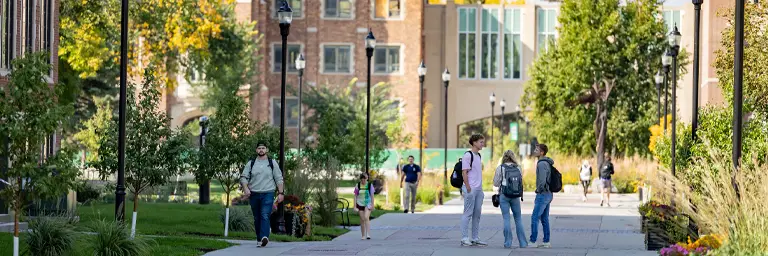History Minor
Studying history provides crucial insights into questions such as who we are and where we came from.
Understand the past and how it impacts the present by adding a minor in History.
- Program type:
- Minor
- Format:
- On Campus or Online
- Est. time to complete:
- 1-2 years
- Credit hours:
- 21
Why minor in History?
With a minor in History from UND, you'll be prepared to explore big questions, conduct research and explain the past in ways that are meaningful to the present.
The history minor draws from courses in North American, European and World history, and prepares graduates for careers in professional fields including:
- History
- Public or digital history
- Law
- Government service
- Business
- Teaching
UND also offers a bachelor's in History and a certificate in Public History. Whichever program you choose, you'll graduate with high-demand skills like problem-solving and the ability to communicate clearly and persuasively.
What majors pair well with a History minor?
Pairing a History minor with certain majors can provide you with a well-rounded education and open up various career paths. Here are some bachelor’s degrees that pair well with a History minor:
- American Indian Studies Degree: This major could offer a complementary perspective to history, focusing on the indigenous peoples of America and their cultures, societies, and histories.
- Classical Studies Degree: Classical Studies often involves the study of ancient civilizations such as Greece and Rome, which could complement historical studies.
- English Degree: English majors often study literature from various time periods, offering insights into the cultural and historical contexts of different periods.
- Geography Degree: Geography often involves the study of human societies and their interactions with the environment, which can complement historical studies.
- International Studies Degree: This major could offer perspectives on global history, politics, and cultures, providing a broader context for historical studies.
- Middle Level Education Degree: A History minor provides a foundation for teaching social studies, civics, and history itself.
- Philosophy & Ethics Degree: Philosophy often intersects with history, particularly in the study of historical ideas, ideologies, and ethical frameworks.
- Political Science Degree: Political science can provide insights into the political dynamics and structures that shape historical events and processes.
- Secondary Education Degree: For those planning to teach at the secondary level, a History minor provides a rich background to deliver comprehensive and engaging instruction in social studies, history, or related subjects.
- Sociology Degree: Sociology offers perspectives on social structures, institutions, and dynamics, which can complement historical analyses of societies and cultures.
